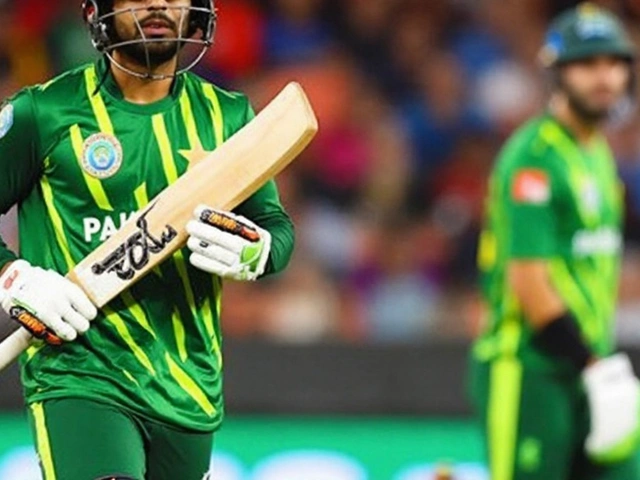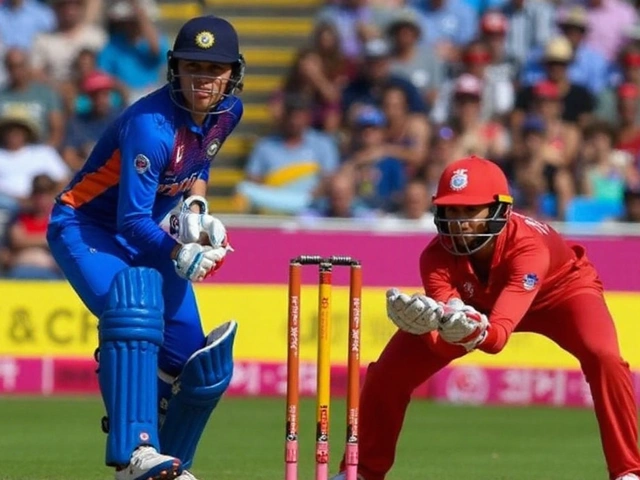On October 27, 2025, Jnanesh Kumar, Chief Election Commissioner, stunned the nation by announcing the second phase of a sweeping, state-by-state Special Intensive Revision (SIR) of voter rolls across 12 states and union territories. The move, set to run from October 28, 2025, to February 7, 2026, isn’t just administrative—it’s political dynamite. The process includes door-to-door enumeration, printing of draft lists, and a 30-day window for objections, all of which could erase hundreds of thousands of names. And in a country where every vote counts, this isn’t just about accuracy—it’s about power.
The Timeline That Could Reshape Democracy
The schedule is precise, almost militaristic. From October 28 to November 3, printing and training for enumerators will take place. Then, from November 4 to December 4, teams will go house to house, verifying identities with Aadhaar and other documents. The draft voter list drops on December 9, triggering a 30-day period for claims and objections—until January 8, 2026. Hearings for those flagged will run through January 31. The final list? Published February 7, 2026. That’s less than three months before the next major state elections.
Why such urgency? The Bharatiya Janata Party (BJP) hailed it as a necessary step to remove "Bangladeshi infiltrators," a phrase that echoes the 2019 Citizenship Amendment Act debates. But critics see something darker. In Maharashtra, Uddhav Thackeray’s faction called it "match-fixing," suggesting the review targets opposition strongholds. The numbers don’t lie: Bengal, Kerala, and Tamil Nadu—states with large Muslim populations and strong regional parties—are among the 15 under SIR scrutiny. That’s no coincidence.
Political Earthquake in Bihar
While the Election Commission works, the political battle is already raging. On the same day, Tejashwi Yadav, leader of the Rashtriya Janata Dal (RJD), stood before a roaring crowd in Patna and didn’t mince words. "From the beginning," he declared, "they’ve been plotting against us. Why does the BJP hate the backward classes? Why does it resent that Mukesh Sahani is now seen as a chief ministerial face?"
Yadav predicted the BJP-led NDA would lose ground—falling from 225 seats to just 175. "They’ll come down," he said, "and the people will come out on the streets to vote against them." His words aren’t empty. Bihar’s 2025 assembly polls are shaping up to be a referendum on caste alliances and anti-BJP sentiment. The RJD, with its base among Yadavs and Muslims, is banking on the SIR rollout to mobilize voters who fear disenfranchisement.
Supreme Court Weighs In on Delhi Riots Case
Meanwhile, in the Supreme Court, a different kind of reckoning unfolded. On October 27, 2025, at 9:54 a.m. IST, a bench of Justices Arvind Kumar and N.V. Anjaria heard bail applications from four activists—Umar Khalid, Sharjeel Imam, Gulfisha Fatima, and Mirhan Haider—who’ve been jailed since 2020 under the Unlawful Activities (Prevention) Act for allegedly conspiring in the February 2020 Delhi riots. Their lawyers argue the evidence is circumstantial, the charges politically motivated. The court’s decision, expected in weeks, could set a precedent for how dissent is treated under anti-terror laws.
Monsoon Cyclone ‘Montha’ Threatens Eastern Coast
As politics heats up, nature adds its own pressure. Cyclone ‘Montha’ formed over the Bay of Bengal, triggering high alerts in Odisha, Andhra Pradesh, and West Bengal. Chief Minister Naveen Patnaik canceled government holidays in seven districts, ordered evacuations, and pre-positioned disaster teams. Schools shut. Fishing boats recalled. Power lines braced. The storm isn’t expected to make landfall directly—but its rain bands could dump over 300 mm of rain in 48 hours, flooding low-lying areas already strained by poor drainage.
A Murder Plot in the Capital
And then there’s Delhi. On the afternoon of October 27, police revealed a chilling case: Ramkishan Meena, a live-in partner, allegedly plotted to kill his girlfriend—a UPSC aspirant—using a cylinder blast. The motive? She threatened to expose financial fraud tied to his coaching business. Police say he’d been researching explosives for months. Her body was found in their flat on October 25. The arrest came two days later. It’s a grim reminder that behind every headline, there are quiet tragedies.
Why This Matters
This isn’t just about voter rolls. It’s about who gets counted, who gets silenced, and who gets to decide. The SIR process, if misused, could suppress votes in key swing states. The Supreme Court’s handling of the Delhi riots case could redefine free speech. The cyclone tests governance under stress. And the murder case? It’s a microcosm of how power, betrayal, and desperation collide in modern India.
The next 100 days will determine whether institutions hold firm—or fracture under pressure.
Frequently Asked Questions
How many people could be affected by the Special Intensive Revision (SIR)?
The Election Commission hasn’t released exact numbers, but preliminary estimates suggest 5 to 8 million names could be flagged for review across the 12 states. In states like West Bengal and Assam, where past SIRs removed over 1 million names, the scale could be even larger. Critics warn that many legitimate voters—especially those with mismatched documents or rural residents without Aadhaar—could be wrongly excluded.
Why are Bengal, Kerala, and Tamil Nadu specifically targeted?
These three states have the highest Muslim populations in South India and are governed by opposition parties. In Bengal, the Trinamool Congress has dominated since 2011; in Kerala, the Left and Congress hold power; in Tamil Nadu, the DMK leads. The BJP, which lost all three in 2024, sees SIR as a tool to weaken opposition voter bases. The Election Commission insists the selection is based on demographic anomalies—but independent analysts see a pattern.
What’s the legal basis for the Special Intensive Revision?
The SIR is authorized under Section 19 of the Representation of the People Act, 1950, which allows the Election Commission to revise voter lists for accuracy. But the scale and speed of this phase are unprecedented. Legal experts argue that while revision is legal, the timing—just months before elections—and the focus on specific states may violate the principle of neutrality under Article 324 of the Constitution.
How has the Supreme Court responded to similar voter roll challenges in the past?
In 2019, the Court upheld the Assam NRC process but warned against disenfranchisement without due process. In 2022, it ruled that voter list purges must include adequate notice, legal aid, and appeal mechanisms. The current SIR lacks many of these safeguards. Activists have already filed petitions in the Delhi High Court, asking for a stay—expect a ruling by mid-November.
Could the cyclone delay the voter roll process?
Potentially. If Cyclone ‘Montha’ causes widespread damage in Odisha or West Bengal, door-to-door enumeration could be halted in affected districts. The Election Commission has contingency plans, including mobile enumeration units and digital submissions, but rural areas with poor connectivity may fall behind. Delays could push back the final list, creating legal uncertainty before state elections.
What’s the connection between the UPSC aspirant’s murder and the political climate?
There’s no direct link, but the case reflects a broader tension: the pressure on youth in competitive systems, the rise of financial fraud in coaching industries, and how personal grievances can turn deadly in a high-stakes society. The accused, Ramkishan Meena, ran a coaching center targeting UPSC aspirants—exactly the demographic the SIR might impact. It’s a grim metaphor: when systems fail, people turn to violence.



